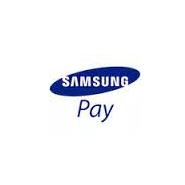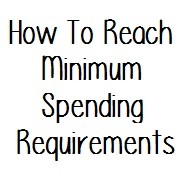Are miles, points, MS, and reselling taxable? The question comes up time and again, and I thought to start a discussion about it here.
This post is for discussion purposes only. Let us know your own thoughts in the comments below. Please consult your lawyer or tax advisor before making tax decisions.
Let’s start with a few introductions, then we’ll go through various scenarios that come up.
Contents
Reselling
If you resell merchandise for a profit, that’s obviously a business, and you’ll owe taxes like any other business. Once you earn more than $400, the law requires you to pay taxes as a business. (Amounts less than that might be subject to personal income taxes but not business taxes.)
Reselling gift cards should be the same.
Promotional Rewards
An important prefatory note is that compensation received from a business are taxable. While gifts you receive from a friend are typically not taxable (without getting into a Gift Tax issue), incentives from companies are viewed differently. It’s not a gift.
As an example, banks and shopping portals issue Form 1099-Misc to those who earn $600+ in cash referral bonuses.
Miles and Points versus Cash Back
In 2002, the IRS provided a guideline (pdf) differentiating cash rewards from miles/points. Here is their announcement:
Consistent with prior practice, the IRS will not assert that any taxpayer has understated his federal tax liability by reason of the receipt or personal use of frequent flyer miles or other in-kind promotional benefits attributable to the taxpayer’s business or official travel. Any future guidance on the taxability of these benefits will be applied prospectively. This relief does not apply to travel or other promotional benefits that are converted to cash, to compensation that is paid in the form of travel or other promotional benefits, or in other circumstances where these benefits are used for tax avoidance purposes.
So long as you aren’t using the miles as a way of avoiding taxation (e.g. getting paid in miles instead of cash), the IRS tells us that miles and points are not taxable due to their uncertain value. However, anything converted into cash would be taxable.
The IRS is apparently addressing the case of someone who gets miles and points from hotel stays and flights taken during business-paid travel and then uses up the miles for personal travel.
The same logic should apply to miles earned as a bonus. For example, if you earn miles from business purchases using an online shopping portal, it won’t be taxable even if the miles are used up on personal travel. And if you get 20,000 miles for a hair loss consultation, you wouldn’t have to worry about taxes.
Gray Areas
There are still some gray areas:
- Points which do have a cash value, such as Ultimate Rewards, which can be cashed out at one cent per point. If you do take the cash, it presumably becomes a cash back card. But what if you use the points for travel? Is there still a 1% cash value there since you could have cashed it out at that rate?
We should add that even Membership Rewards, ThankYou points, and Southwest points arguably have a cash value since they can be redeemed for merchant gift cards (like Amazon or Best Buy) and those are typically considered like cash. - Travel credits with points like Barclay Arrival or Capital One Venture can only be redeemed for travel. There might be an argument that since there if there is no cash value, it’s similar to the IRS guideline on miles and points and won’t be taxable. (We should note that part of the redemption might still be taxable since in the case of the Arrival, for example, you can cash out at .5 cents per point.)
Bank Bonuses
All bank bonuses are considered income and are taxable. Usually, the bank will file a Form 1099-INT to document the income, although they’ll occasionally send a Form 1099-Misc instead.
Banks are required to send a Form 1099-INT for amounts of $10+ and Form 1099-Misc for amounts of $600+. Though not required, some banks will send these forms for lower amounts as well.
You might bump into a bank which does not issue a Form 1099 at all. In one reader’s experience, banks like Citi and PNC have not issued any Form 1099 for cash bank bonuses. They probably consider the income to be Miscellaneous income – not Interest income – and subject to the $600 reporting threshold. Since most bank bonuses are less than $600, those don’t get a 1099.
However, the majority of banks report file this as interest income with a Form 1099-INT and must report cash bank bonuses of as little as $10. Even banks who consider it subject to Form 1099-Misc might report amounts less than $600. I once got a 1099-Misc for a bank bonus of $125.
In any case, we are legally supposed to self-report such income and pay taxes on it.
Citi’s Stance
It was news in 20102 when Citi sent out Form 1099-Misc for those who received 25,000 American Airline miles for opening up a checking account. Incredibly, they valued the miles at 2.5 cents per point, or $625 for the 25,000 mile bonus.
It’s not clear why Citi sent out those forms after the IRS had already made clear years earlier aren’t taxable. They probably considered a bonus as being different than the IRS scenario of employee travel rewards. In any case, the practice of sending 1099s for miles appears to have stopped, possibly as a result of the lawsuits Citi faced.
While Citi no longer sends out 1099s for miles earned as a bank bonus, they still apparently send out 1099s for ThankYou points earned as a bank bonus, in a very specific situation: if you get $600+ value out of the ThankYou points in a single calendar year, you’ll get a 1099.
If you get a 50,000 point bank bonus and redeem it for $500 in gift cards, you won’t get a 1099. But if you use it for travel at a rate of 1.25 cent-per-point (something possible for Citi Prestige or Premier cardholders), you’ll get a 1099 since you got a $625 cash value from the points. It seems, that as long as you don’t get $600 of redemption value in a calendar year, they won’t send a 1099.
So Citi differentiates between miles and flexible points which are redeemed for a specific value.
This is all with regards to bank bonuses, not credit card bonuses since all those have spend thresholds, and any cash value from the bonus is considered a rebate on the spend.
Referrals
As noted above, banks and other businesses regularly send out 1099s for referral bonuses. They typically only send at the $600 threshold, though we are supposed to self-report amounts less than that. Meaning that technically if you get a $5 shopping portal referral bonus, it would be taxable.
This does not mean that the income is necessarily considered a business, but it’s at least taxable like other personal passive streams of income.
Cash Back from Purchases
For personal purchases, the cash back is not taxable since it’s considered a rebate on the purchase cost. For example, if you buy $100 pair of shoes and got $2 cash back from the credit card, it’s like you paid $98 for the shoes and there’s no reason to pay taxes on that $2 received.
For business purchases, it’s usually assumed that the card cash back reduces the cost of the item, no different than any other rebate (pdf, page 29). On a practical level, this means if you get $100 cash back from your credit card, it is subject to tax like any other business profit, both personal income tax and any business taxes there might be.
[I’d have made an argument that the cash back is not a rebate since it comes from a separate company; rather, the rewards will be considered miscellaneous personal income, similar to cash referral bonuses, and will not be taxed as business income, only personal income (which will save ~15% tax, in many of cases). However, everyone seems to assume it’s a rebate, and future discussion in this article will assume that way as well.]
Some feel that if you use a personal credit card for your business purchases and reimburse yourself, it negates the tax issue. Others, however, aren’t happy with this approach when it’s done purposely to avoid taxation, something critically singled out in the above-mentioned IRS guideline. Also, the IRS guideline specifically mentions that any benefit converted into cash would be taxable, and cash itself shouldn’t be less than that.
Miles from Purchases
Miles or points earned from purchases (e.g. AA, SPG, Hilton, etc.) which are subsequently redeemed for personal use would seemingly be exempt from taxes due to the above-mentioned IRS ruling.
Therefore, if you are worried about your tax liability for business purchases, consider using a points or miles card instead of a cash back card.
Credit Card Signup Bonus
If you get a cash signup bonus on a credit card (e.g. spend $500 and get $100 back), the bonus can be considered a rebate on the $500 in good purchased and thus non-taxable. This would be true even if the cash signup bonus in question is a business credit card. (Banks don’t like when you use a business card for personal spend, but if you do, the bonus wouldn’t be taxable.)
For this reason banks don’t issue a Form 1099 for cash signup bonuses on credit cards like they do for bank bonuses since the bonus is considered a rebate on the purchase.
What if you spend the $500 to buy things for your business? The signup bonus might reduce the cost of the purchase and bring down your cost basis/expense to just $400 instead of $500. Effectively, this would mean the signup bonus is taxable like other business income.
If you make $100 in personal purchases and $400 in business purchases, it can be argued that the $100 bonus offsets the personal purchases and is thus non-taxable.
Manufactured Spending (MS)
If you MS for points or miles, it should be included in the IRS guideline, above, exempting miles and points due to their vague valuation.
But what if you MS cash back, e.g. you buy a $500 VGC at 5% back on an OBC card? Even if you consider the 5% as a rebate on the purchase price there’s still a profit here, and the regular logic exempting cash back on purchases from tax does not apply.
I’ve heard 3 schools of thought:
- It’s not a business since no goods or services were provided. It’s more like other passive income (e.g. real estate, stocks, flipping currencies for a profit, buying bitcoin and selling at a profit, etc.) and taxable at your personal income bracket, but there isn’t any business tax liability.
- Anything done repetitively with the goal of profit is a business. It’s taxable like a business.
- No tax at all (yay!).
I don’t fully understand option 3, but I know many people subscribe to that, haha.
Store Credit (e.g. eBay Bucks)
Another interesting question is how to treat store credits like eBay Bucks certificates or Best Buy Rewards certificates or Kohl’s Cash certificates.
- If you earned the store credit from personal purchases and redeemed it to buy personal items, it’s probably not taxable.
- If you earned the store credit from business spend and redeemed it on a business purchase, the rewards might act as a discount on the second purchase, effectively making them taxable like business income.
- What if you earned the store credit from business spend and then redeemed it on a personal item? It might still be technically taxable since it’s similar to an eBay gift card. Broad-use gift cards are usually considered like cash.
- What if you earned the store credit from personal spend and then redeemed it on a business item? An argument can be made that the store credit was my personal stash of cash-equivalent which I used on the business, as if I sent money over from my personal account to my business account, and thus not taxable. The business ‘buys’ the certificate from the personal, and you can ascribe the full purchase price of the item in your business records despite the fact that you didn’t pay anything for it.
Amex Offers
Amex Offers used for personal purchases would be considered a discount and non-taxable.
If used for a business, it would usually be considered a discount on the purchase price and effectively taxable. Sometimes, there are Amex Offers which Amex pays for themselves, like $10 off $10 during Small Business Saturday. Those might be considered differently since they aren’t a rebate from the merchant.
Shopping Portals
Lastly, let’s talk about shopping portals. Mileage portals should fall under the IRS guideline, above, and not have a tax issue, even if redeemed for personal travel.
As for cash back portals: if you make a personal purchase through a shopping portal, it should be considered a rebate on the purchase and non-taxable. On a business purchase it could be considered a rebate on the purchase and effectively taxable like business income.
If you get a random portal bonus, like getting $5 for using the portal three times, it’s probably taxable at your personal income rate, similar to other forms of passive income and similar to a referral bonuses.
Final Thoughts
In conclusion, let’s acknowledge that most people probably don’t report these kinds of profits (with the exception of a real reselling business). I like going through rules and dissecting them, and hopefully there is some useful information in this post.
We should note that this issue doesn’t only come up for churners. There are, undoubtedly, thousands of oblivious people who earn $5 or $10 from referring someone to a portal or a business and it won’t ever dawn on most to report it on their tax return, despite the fact that referral income is clearly something banks and businesses consider taxable.
Let us know your own thoughts in the comments. Feel free to disagree with anything written in this post, just try to keep it civil.







This will only matter if the IRS audits your return. Your chances of being audited are slime to none depending on your income level or if your claiming a business. I forgot 2 years ago that when your accounts are paperless you will not receive a 1099-INT in the mail, but in a document form within the account online. I had already closed the accounts after receiving the bonus. Filed my taxes without including the bonuses due to the fact I was never sent a 1099-INT. Never heard anything from the IRS and probably never will! This year I have the tax forms for the bonuses and did not claim them, but will pay taxes on them if the IRS sends me a bill! If I owe, I owe, send me a bill. 🙂
So you are admitting to tax fraud on a public website? Smart.
Let’s be fair though, just as many people likely go 15 over on the interstate, The penalties and interest for underreporting $500 of income is less than the cost of a speeding ticket. Now, if you underreport $50,000 of income, then you’re talking about trouble. Still, I agree just like one should not talk about how they speed on the freeway, it’s not ideal to talk about tax fraud online.
The IRS needs to !@#$ off. It’s a shame they want a cut of everything. I don’t see why they think they’re entitled to a cut of our credit card rewards!!
Your anger is misplaced. The IRS simply enforces tax law, which is written by our Congress Critters. It’s these clowns you should be upset with.
Haha. Don’t worry, I’m equally ticked off with ALL members of Congress.
yes, screw those clowns who are wasting taxpayers’ money everyday! I will not contribute my hard earned points to those suckers. LOL
Hi Doc,
Thanks for this post, and I agree with your conclusion that most people aren’t going to bother. But knowledge is power, and this has been a far more fascinating read than the conventional knowledge of “credit card rewards are rebate and therefore not taxable”.
Thanks
My understanding is the IRS view points/miles earned thru credit card spend as rebates. And since it is a rebate on money you’ve already paid taxes (presumably), then the rebate can’t be taxable. So whether you then redeem your miles/points for cash back immaterial.
Thanks for commenting. We discussed this point in the post.
One quick note on MS.. The IRS is getting smarter with data analytics. I spoke with an IRS auditor who detailed their strategy of matching the spend on a business credit card with the EIN reported on the tax return. In this case, it was a tip where someone tipped off the IRS to the taxpayer fraudulently under reporting income on their tax return. They were able to pull the credit card data and prove income was underreported. Obviously, there was a lot of organic spend and the taxpayer was just didn’t want to report all the income. It might not be too far off from them running this sort of analytic on the general public though…only if they can get their hands on the data from the credit card companies.
The taxability of points/miles from GC selling is what has me all confused. They don’t have $0 value but the value is so uncertain. I got an $11k ticket on SQ Suites in part from GC selling. That being said, I would have never bought that flight at that price (maybe $600 sure, but not $11k). How you value miles/points is very dependent on who you talk to I guess – but reporting it (or even whether you need to report it) as business revenue/income is confusing as hell.
In this post, we write that points and miles aren’t taxable, even those earned from business spend. So in your case that would mean that it’s not taxable at all.
If you earned cash profit from gift card selling that would be a different story.
I also don’t report anything if I don’t get a tax form.
Tax question… Who would be able to help answer? I’m an independent contractor. I can subtract business expenses from my income. If I use points to cover some of my business expenses, is there a way I can still subtract those expenses from my income for tax purposes? I earned the points from both personal spending and business spending (let’s say credit card spending). In my particular case, I’m using Amtrak points to get to my work site. Say I use 60k Amtrak points/yr to do this… That would have cost me $1740 cash. Or would this be “double dipping”.
Good question and related to the topic of the post.
I’m not a tax advisor.
Off the top of my head, I’d think that the points earned from personal spend can be ‘purchased’ by the business and thus you CAN count that as a business expense. Maybe I should add this into the post.
You run into the same issue as in my comment below. If you sell an asset with zero cost basis, then the proceeds are taxable and the purchase price becomes deductible by the company.
Of course, the IRS believes that if you find a widget on the side of the road, take it home and clean it up then sell for $50 on craigslist, that $50 is taxable income. I’m not a fan of the IRS.
This is really a question for your accountant / tax professional, but what is your cost basis in those points you’re using for business expenses? Since they were given to you for free (as a gift/bonus for other spending), your cost basis is 0, so your deduction would be 0.
On the other hand, if the “retail” price is $500 and you use points, you could have your company reimburse you the retail price, tax free to you. You can do this for years until the IRS audits you. Once they do, they’re probably going to agree with paragraph #1 above.
You can avoid this problem by always paying cash for business expenses and use points/miles for personal expenses. More for you and less for Uncle Sam.
Thank you, this was a fantastic write-up & confirms most of the research I’ve done on this topic(i’m a reseller)
In 2017 I’ve switched to using points/miles cards to save on taxes.
in 2016 though, I reported/paid taxes on all my credit card cash back, shopping portal cash, Ebay Bucks, etc.
The only thing I didn’t report was any credit card sign-up bonuses, I didn’t think those were taxable even for business purchases, I will have to look back through my research/links to see how I determined that.
Follow-up question/thought-
For Shopping Portal Cash Back, for business purchases, I’ve always paid taxes on the cash I’ve received from these websites, mainly because it’s being deposited directly into my PayPal or bank account. I know gift cards are generally considered a cash equivalent.
BUT, if I choose to redeem my shopping portal rewards for Amazon gift cards, etc. instead of cash & use them for personal purchases, then I don’t really see any possible way the IRS can track this or even know that these gift cards ever existed.
What are your thoughts on this?
I’m not an expert on how audits work. I guess theoretically they could ask you for your Amazon account history, but that seems highly unlikely.
Seems unlikely, but at the same time though they don’t know the source of those gift cards.
After focusing mainly on MS for CB last year, I set up a ‘sole proprietorship’ business to report the income. I figured it would be worthwhile to sacrifice some profit (actually a good chunk of it) in order to (a) keep my tax reporting above board and (b) allow me to apply for business credit cards.
The moderately interesting part is how the tax liability skews the reward profile towards putting that spend on ‘grey area’ options instead, such as Barclay Arrival or UR cards. Assuming you can convince yourself that travel reimbursement and/or UR pts aren’t taxable.
I’m still grappling with that issue regarding my approach in 2017.
Interesting, hadn’t realized some people actually set up an MS business! 🙂